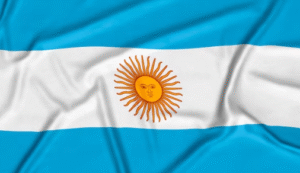$KOSPI $EWY $005930
#SouthKorea #ShortSelling #StockMarket #FinancialReform #NakedShortSelling #MarketRegulation #KOSPI #SamsungElectronics #EWY #InvestingInKorea #EquityMarkets #AsianMarkets
Monday marked a significant shift in South Korea’s approach to its equity market regulations, as the nation concluded its longest short-selling ban in history. Initially imposed in November 2023, the ban was a reaction to widespread concerns over naked short selling—a practice that involves selling shares without owning or borrowing them first, often leading to market manipulation and volatility. The decision to reintroduce short selling comes after considerable systemic reforms aimed at enhancing market transparency and stability.
The imposition of the ban was a pivotal moment for the Korean financial markets, triggered by acute market disruptions amid global economic uncertainties. The government’s decisive action was intended to curb speculative trading that could exacerbate market downturns, providing a buffer against potential financial crises. However, the prohibition of short selling also sparked a debate about market freedom and its impact on market liquidity and price discovery, essential components of a healthy capital market.
Throughout the duration of the ban, South Korean authorities undertook significant measures to address the regulatory loopholes and strengthen oversight mechanisms. These reforms were focused on tightening rules around short selling, implementing stricter penalties for violations such as naked short selling, and enhancing surveillance systems to detect and prevent market abuse. The objective was to restore investor confidence and secure a more resilient market infrastructure that could withstand the test of such speculative practices.
As trading resumes under the new regulatory framework, investors and market participants eye the potential impacts on the South Korean stock market. The lifting of the ban is anticipated to reintroduce some level of volatility as market players adjust to the regulatory changes. However, many experts argue that the strengthened oversight and enhanced transparency measures could lead to a more robust and efficient market in the long term. Moreover, the move is seen as a positive signal to foreign investors, potentially attracting more global capital to South Korea’s equity markets. Among the stocks to watch is Samsung Electronics Co., Ltd. ($005930), a heavyweight in the KOSPI index, which could see increased trading activity. The developments in South Korea’s market regulations mark a significant step towards aligning with global market practices, promising a new chapter for its capital markets.







Comments are closed.